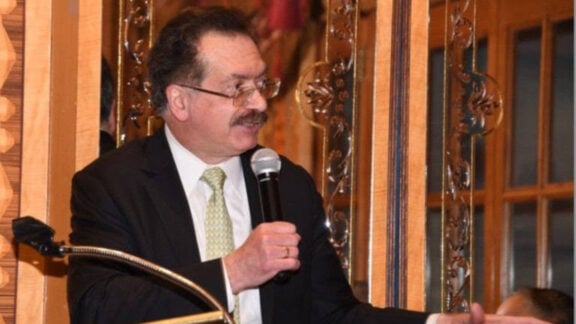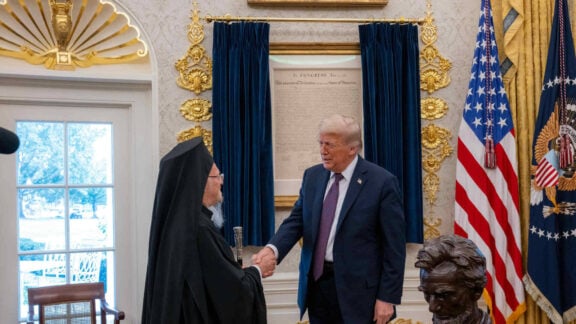In the face of concerted opposition from ethnic communities across Australia, Prime Minister Tony Abbott has abandoned proposals to amend sections of the Racial Discrimination Act.
The PM conceded that the controversial amendments had become a “complication” that was damaging his government and more importantly, put national unity at risk.
The proposals were made more controversial after Attorney General George Brandis – their architect – declared in a parliamentary debate that people “had a right to be bigots” – a statement that infuriated ethnic, indigenous, Jewish and other religious groups.
Mr Abbott chose to make the announcement abandoning the legislation as he unveiled new counter-terrorism measures. The prime minister said he had intervened because “in the end, leadership is about preserving national unity on the essentials, and that is why I have taken this decision.
“At a time when the threat to Australia from extremists is real and growing, we must focus on the things that unite us as Australians.
The Racial Discrimination Act makes it unlawful to “offend, insult, humiliate or intimidate another person or group of people” on the basis of their race or ethnicity. In March, Senator Brandis sought to water down the act with an exposure draft for public consultation. More than 76 per cent of 4,100 submissions received were opposed to the proposal.
Widely criticised even by some Liberal backbenchers, Nickolas Varvaris MP – who was reported to be uncomfortable with the amendments – told Neos Kosmos: “The government undertook extensive community consultation regarding the proposed amendments. The prime minister has carefully considered feedback received from the community and I welcome his decision”.
The abandoning of the amendments has also been welcomed by Greek community leaders.
Defamation lawyer Bill Papastergiadis – president of the Greek Orthodox Community of Melbourne and Victoria, said the debate around the issue was “part of the democratic process. There was robust debate and we ended up with the right outcome.”
Mr Papastergiadis wrote to both the prime minister personally and the attorney general on the matter.
“We categorically advised the government that we would lobby vigorously against the proposed amendments, so we’re pleased with the outcome. We had a voice in this debate and they responded”.
The GOCMV president described the attorney general’s motivations for repealing the act as “misguided”.
“There are laws against trespass and theft, there are laws against defamation, so there is no absolute freedom, and I don’t regard that there should be absolute freedom on comments on a person’s race or religion. There shouldn’t be,” said Mr Papastergiadis.
Labor has branded the leader’s call a humiliation for the attorney-general, who remained stoic after the announcement, telling reporters that he accepted the decision. “You win a few, you lose a few,” said Senator Brandis.
Labor MP Maria Vamvakinou, who chaired a federal inquiry into multiculturalism during the last Labor government, told Neos Kosmos that the Abbott administration had seriously underestimated the importance of the act to the broader community.
“Its decision to drop the proposed changes vindicates all who advocated strongly against the changes, and shows just how misguided and out of step with community sentiment the Attorney General Senator George Brandis is.
“This is a victory for freedom of speech and social cohesion,” said Ms Vamvakinou.
The government’s promise to repeal section 18c of the act at the election after it was used against News Corp columnist Andrew Bolt.
Free speech advocates, including Human Rights Commissioner Tim Wilson, have expressed disappointment with the government’s back down.
“There’s nothing more dangerous to a united ‘Team Australia’ than having laws that create legal privileges for some on the basis of their race that others don’t enjoy,” he said.









